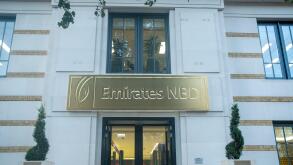Top Section/Ad
Top Section/Ad
Most recent
LatAm agency brings second digital bond this year in the currency
New firm mine. aims to build 'institutional memory' for borrowers
First use of sterling tokenised deposit to buy tokenised Gilt
More digital bonds are expected from the region this year
More articles/Ad
More articles/Ad
More articles
-
This week in Keeping Tabs: whether investors are prepared for the impact of a Joe Biden win on environmental policy, how bond and syndicated loan markets diverged in the crisis, and a crypto app that tanked.
-
Singapore fintech BondEvalue launched BondbloX Bond Exchange this week, which claims to be the first blockchain-based exchange in the world, with the maiden trade executed on a bond from commodities giant Olam.
-
Deutsche Bank picks pair for healthcare — Rothesay makes moves in US — Barclays announces new ESG positions
-
VC Trade, a digital platform in the Schuldschein market, has begun promoting secondary trading on its system, with an eye of scaling up into Europe’s loan markets.
-
MTN platform Origin has released its documentation automation facility to a subset of Origin Marketplace users comprising 11 banks and 16 issuers.
-
A temporary forum created by the European Central Bank to discuss the proposed European Distribution of Debt Instruments (EDDI) project will hold its first meeting in September.











